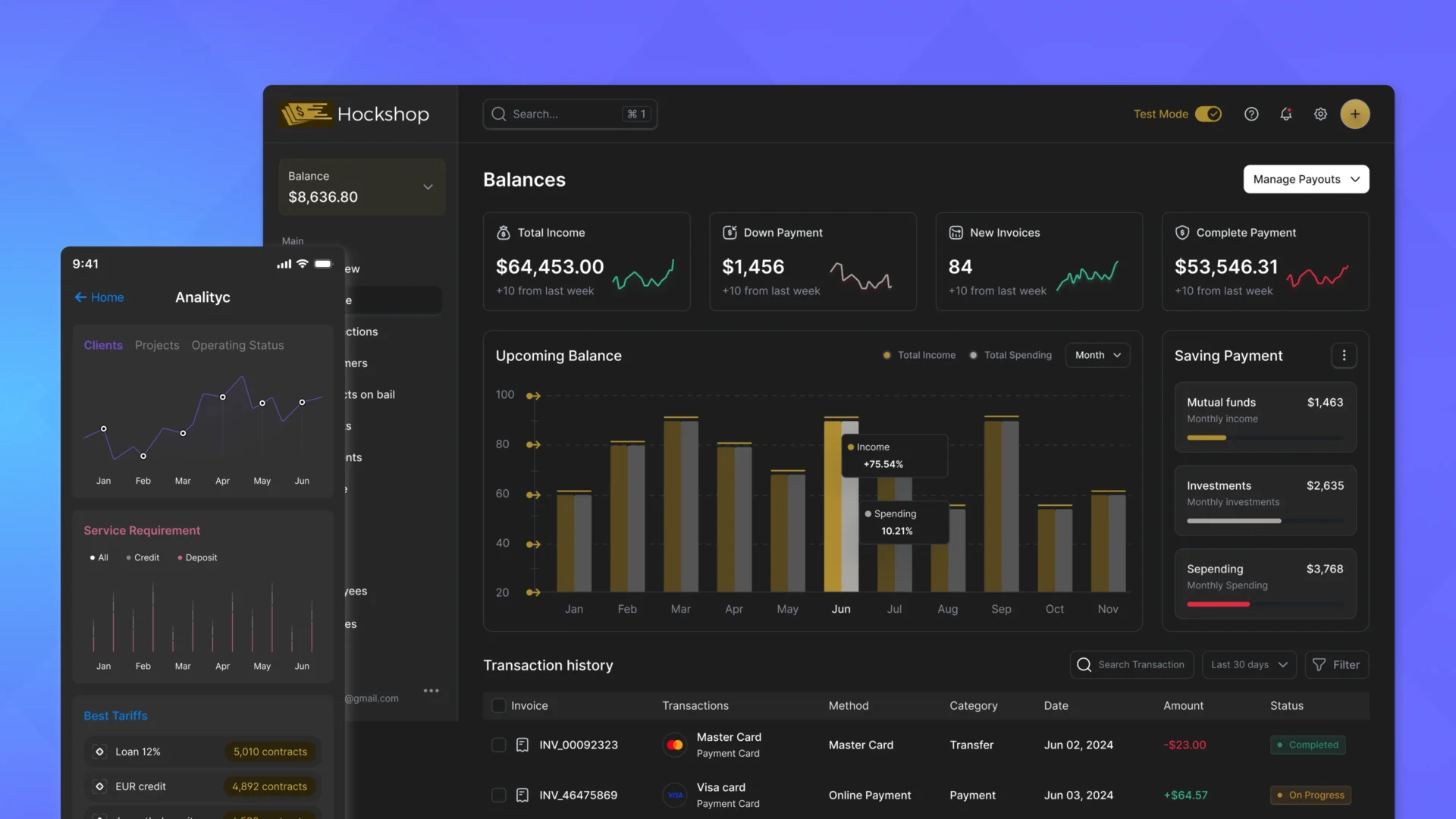
Today, businesses increasingly ask the question: which CRM system is better – off-the-shelf, SaaS, or custom-built? At the early stages, companies usually choose ready-made solutions, as they allow you to quickly launch sales and automate basic processes.
However, over time such systems start creating limitations: they impose their own logic, integrate poorly with internal services, and require ongoing subscription payments. As a result, the business adapts to the tool, rather than the other way around.
At Avada Media, we specialize in custom development of digital solutions: CRM, ERP, SaaS systems, websites, mobile applications, and bots. Our experience shows that custom CRMs for business become the foundation for automation, take into account the specifics of the company, and provide a strategic advantage.
In this article, based on our own expertise, we will analyze the key advantages of individually developed CRM systems compared to ready-made options.
To understand which CRM system is best for your business, let’s look at the main categories. All existing solutions can be roughly divided into two groups: ready-made and custom.
This group includes:
Developed from scratch or partly from pre-built modules, tailored to the specific business processes of a company. It scales flexibly, integrates with any services, and can be deployed on the company’s own servers or in a private cloud. Custom CRM development provides greater control over functionality and data, freeing the business from the limitations of ready-made solutions.
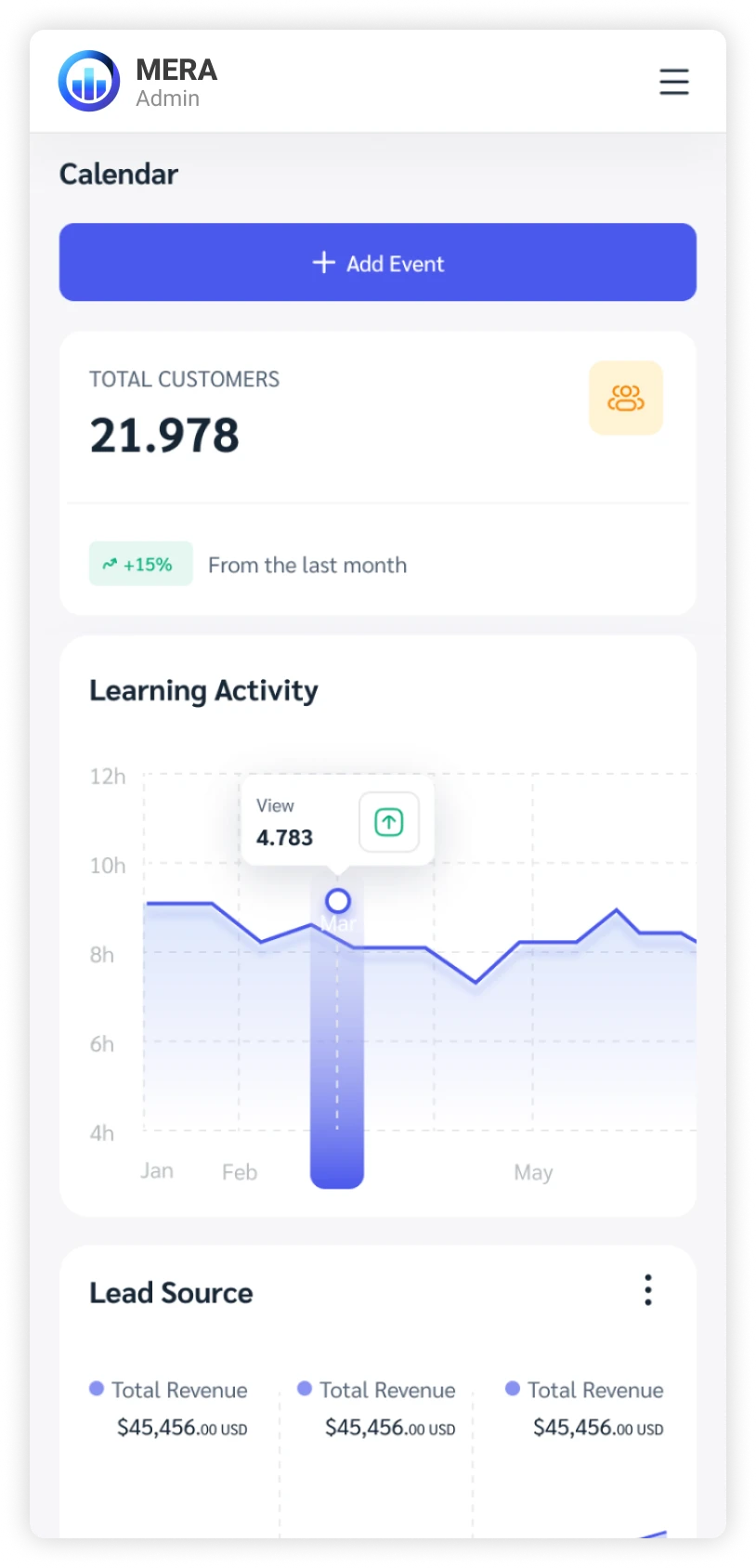
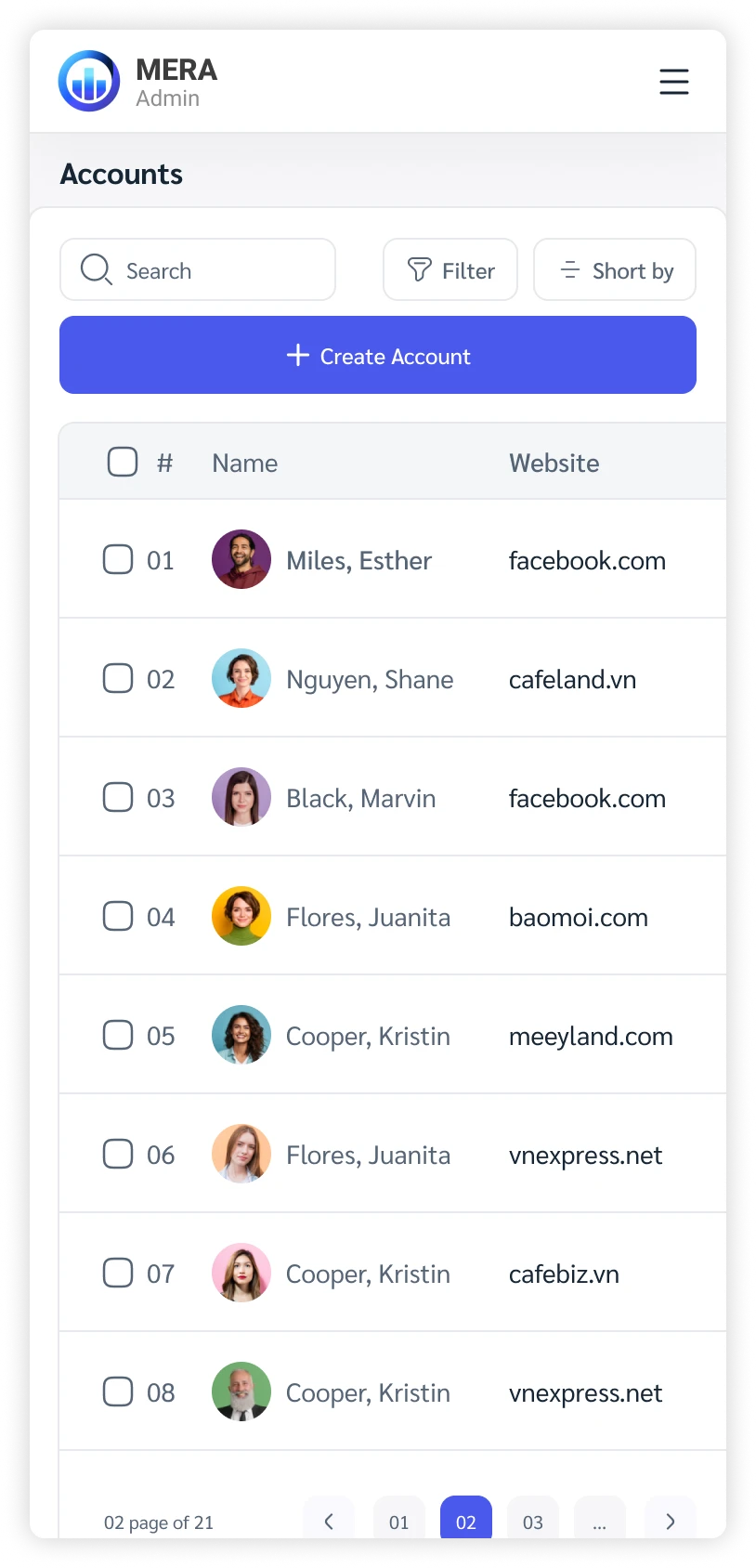
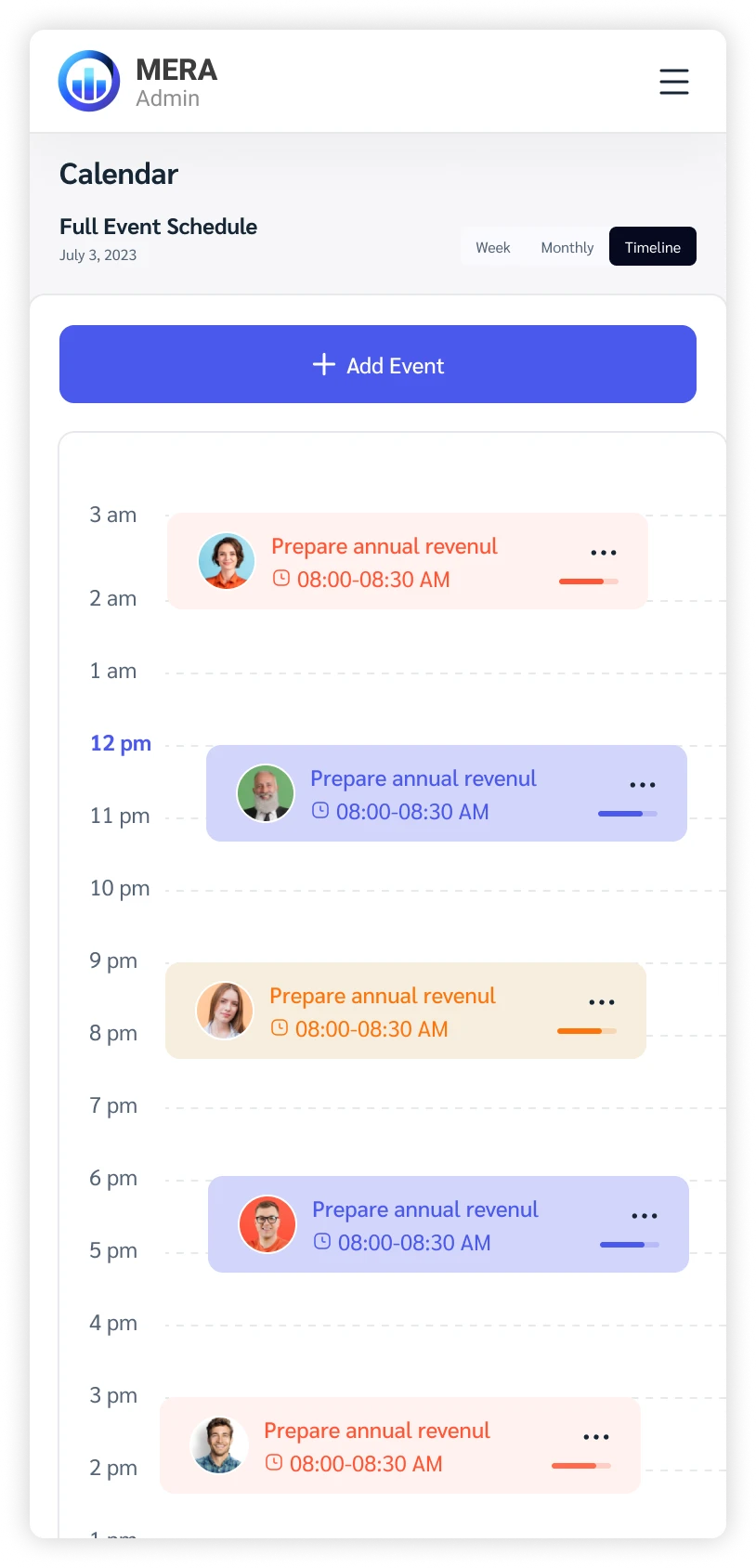
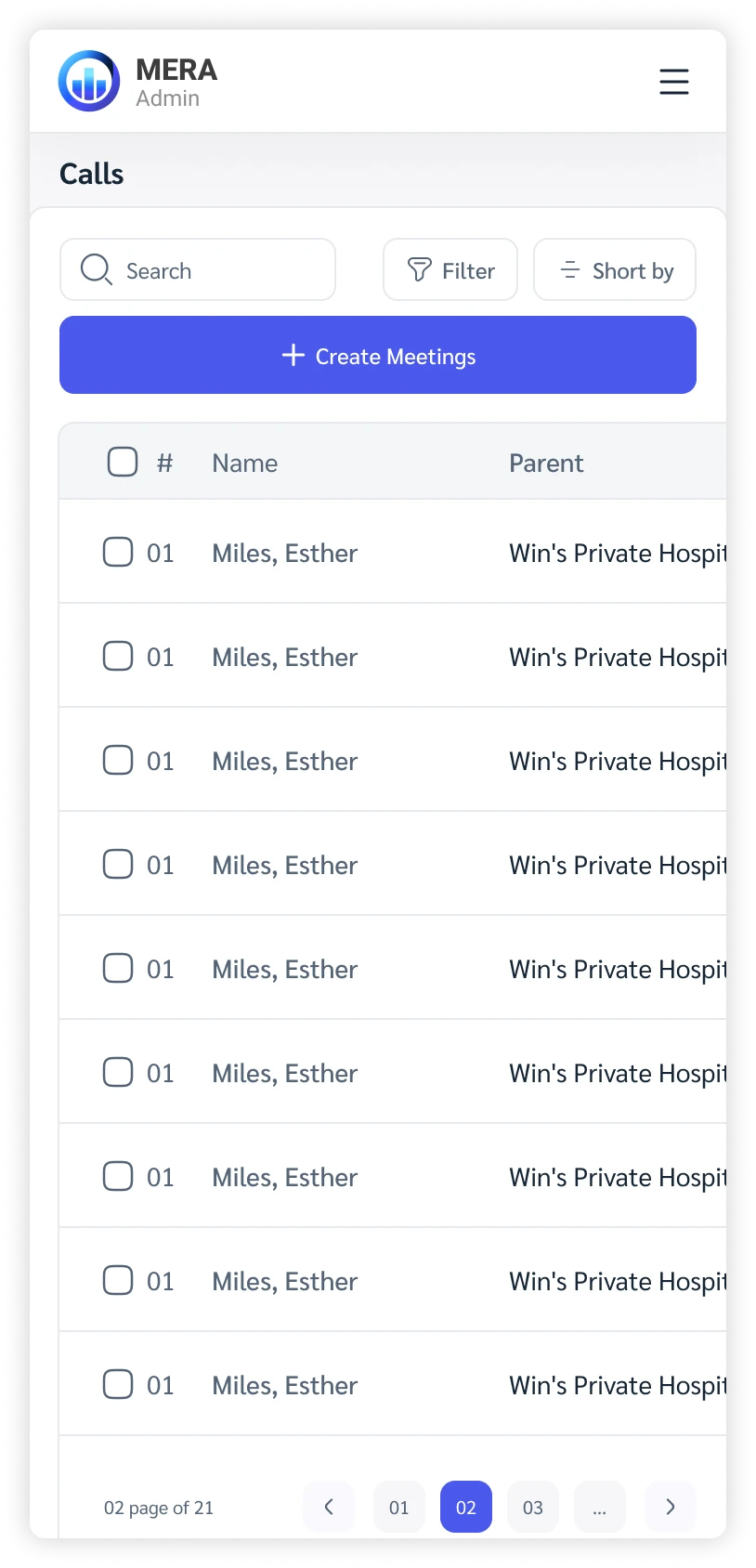
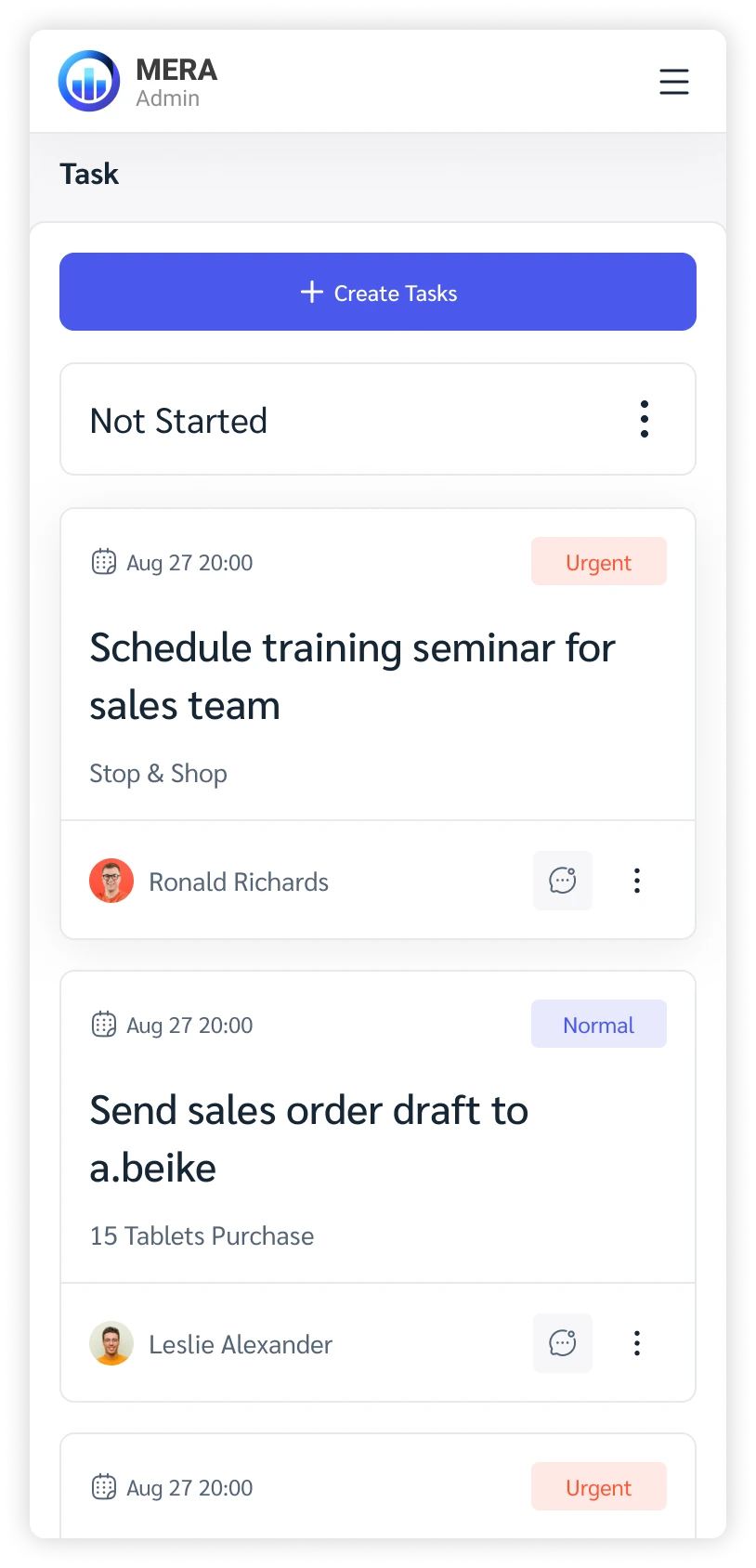
Example of interfaces of the mobile version of CRM
In any ready-made CRM – whether boxed or SaaS – the business has to adapt to the predefined logic: standard sales pipelines, typical deal statuses, and limited document workflow scenarios. This may work for small companies with simple processes, but the more complex the business, the more noticeable the limitations become.
A custom CRM is built around your processes. It allows you to create unique sales funnels, set up flexible approval workflows, and integrate the system with rare or specialized services.
For example, for a company with a long sales cycle and multi-stage document management, custom CRM development makes it possible to have a system where every stage – from initial request to post-payment – is reflected within unified analytics. Managers no longer need to keep parallel records “in Excel on the side,” while executives gain a clear, transparent view of the entire business.
SaaS services often seem convenient at the beginning: you pay for a plan and quickly get ready-to-use functionality. But as soon as the business starts to grow, improvements become an issue – they are either unavailable altogether or come at a high cost and require lengthy negotiations with the provider.
A custom CRM scales together with your company. Adding new modules, implementing analytics, integrating AI tools, or connecting branches across different countries – all of this can be done within a single system, without the restrictions of an external platform.
In boxed and SaaS CRMs, the list of integrations is limited: only those APIs provided by the developer. If you need a non-standard service or deep integration with an ERP, you often find that built-in tools are insufficient.
A custom CRM is open to any integrations. It can be connected to various ERPs, a corporate website, marketing platforms, Telegram bots, or warehouse systems. All tools operate as a single ecosystem – without manual data duplication or “patchwork” connections between programs.
In SaaS solutions, your client and deal data is stored on the provider’s servers. While convenient, this also carries risks: you depend on the provider’s security policies, restrictions, and even on how well they comply with data protection laws.
The advantage of a custom-developed CRM is full control over security parameters. The system can be deployed on the company’s own servers or in a private cloud, fully meeting security requirements. You decide where the data is stored and who has access to it.
With custom development, our specialists implement multi-level protection, including:
Additionally, custom development makes it possible to comply with GDPR, Ukrainian personal data laws, and other local regulations. This is especially important for companies working with international clients or government contracts.
The SaaS model looks affordable at first: you pay a monthly fee. But over time, expenses grow – you add new employees, upgrade your plan, connect extra modules. Eventually, the total cost of ownership becomes higher than expected.
A custom CRM eliminates “subscription dependency.” You invest in one-time development, and then pay only for support and upgrades when they are truly needed. The financial model is transparent and predictable: no hidden charges or constant “extra fees” for team expansion.
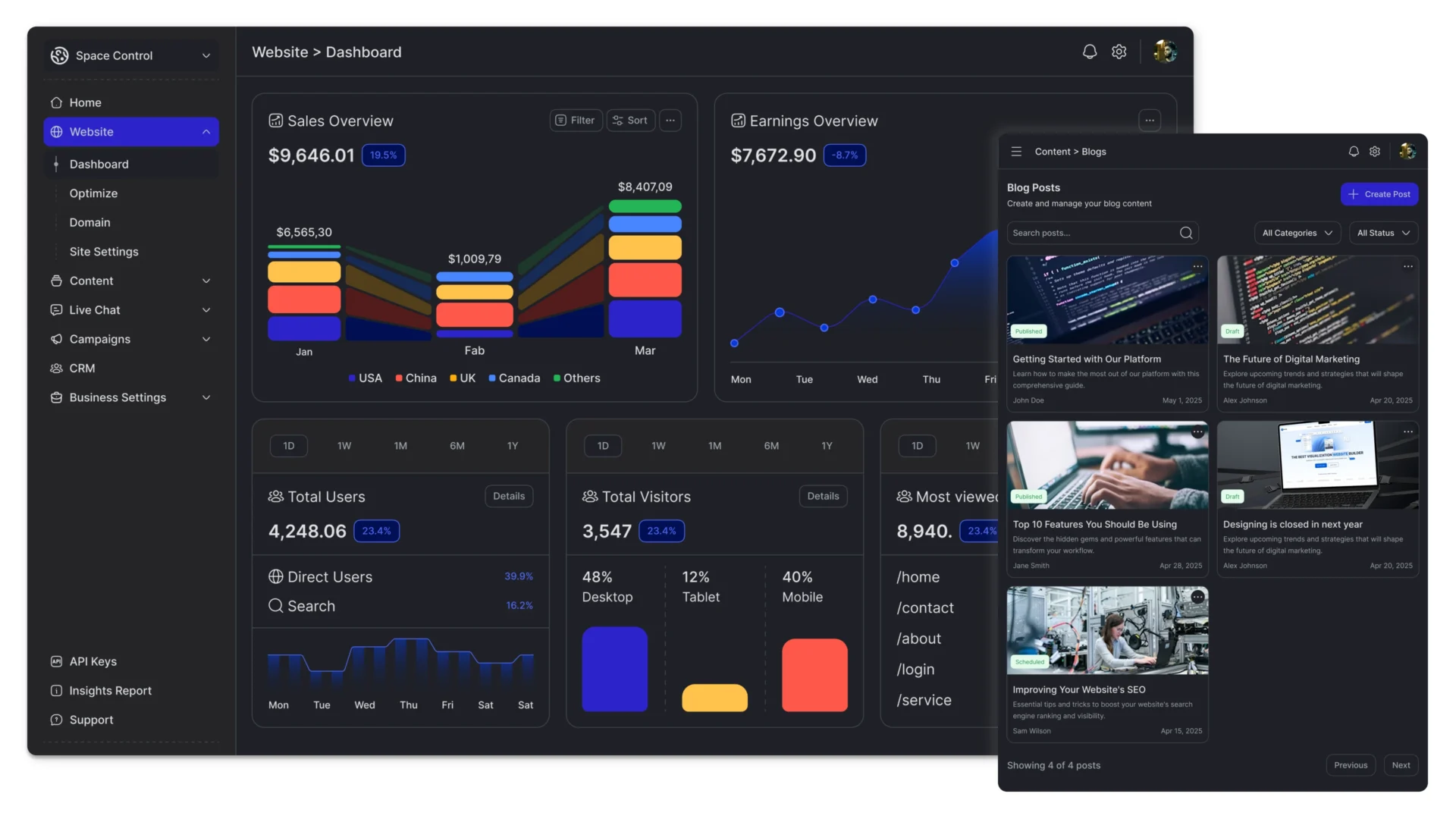
Ready-made boxed CRMs are usually limited to a set of standard reports: number of deals, total revenue, manager performance. But as soon as a business needs a specific metric – for example, average time between deal stages, cost per lead depending on the channel, or combined efficiency metrics for a department – the built-in tools may fall short.
A custom CRM builds analytics around your tasks. The system allows you to:
The result: management gets a transparent system for measuring efficiency, while managers receive clear benchmarks to guide their work.
Ready-made CRMs are marketed as universal solutions, but universality often turns into limitations. In healthcare, construction, logistics, or finance, standard scenarios simply don’t work: special processes, documents, and rules are required.
A custom CRM takes into account the specifics of your industry. This way, the system can embed business logic that directly matches your tasks:
The result: the CRM becomes not just a client management tool, but a full-fledged business automation platform tailored to a specific field.
Examples of industry-specific CRMs developed by our company:
A custom CRM system is not always the only or universal choice. But there are situations when full-cycle CRM development becomes the optimal solution:
One of the most notable examples is the MyHouse24 project for property management companies and HOAs: a unified platform with a CRM for managing cash registers, personal accounts, and apartments; a resident’s personal account with online payments and service requests; plus an admin panel for configuring rates and handling communication.
Advantages of CRM implementation in this case:
CRM for Egmont Aviation (Slovenia) – the official distributor of Diamond Aircraft and JMB Aircraft, as well as the owner of a certified flight school. CRM system: development and implementation for Egmont Aviation covered the company’s key areas – aircraft sales, flight school operations, document management, and analytics.
Advantages of custom CRM development in this case:
The result: Egmont Aviation received a CRM that covers all business areas – from aircraft sales to managing the educational process at the flight school. The system increased process transparency, accelerated lead processing, improved customer service quality, and enabled management to make data-driven decisions.
We design and implement CRM systems for companies across various industries: from e-commerce and logistics to education and finance.
And these are just a few examples of how custom-developed CRMs help businesses automate processes, accelerate sales, and strengthen data control. You can explore more of our completed projects in our portfolio and learn about the CRM systems we have built for different businesses.
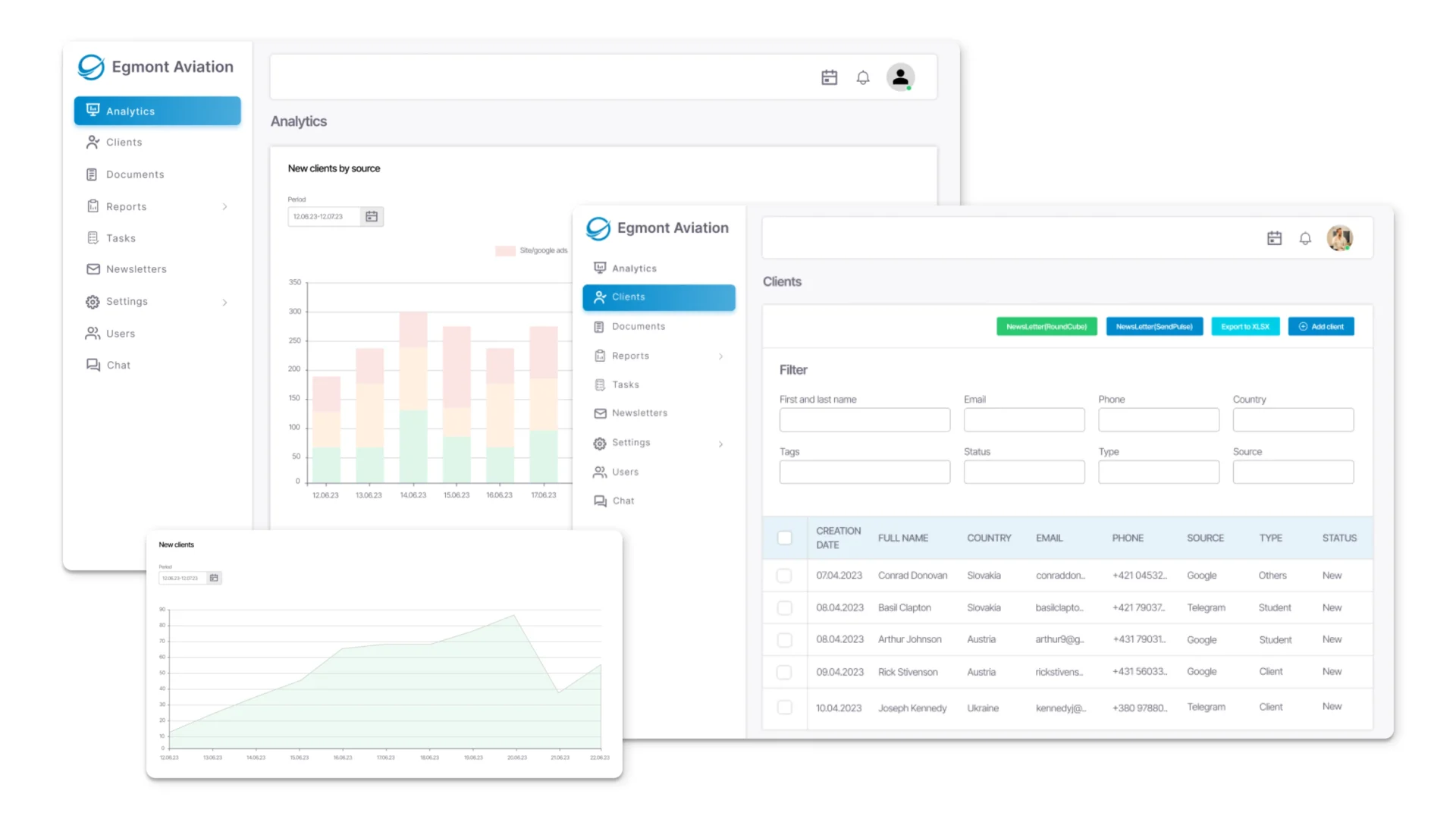
The advantages of implementing a custom-developed CRM system are clear: the company gets a tool that adapts to its processes, scales without limits, easily integrates with any services, and ensures full control over data. Unlike boxed and SaaS solutions, a custom CRM takes into account the specifics of the business and industry, meaning it becomes not just a client management platform, but a complete ecosystem for managing sales, marketing, and operations.
That is why more and more companies are choosing custom CRM development – not to settle for the limitations of ready-made solutions, but to build a system that drives growth and efficiency.
If you are considering implementing a CRM, the Avada Media team will help you design a tailored solution that matches your processes and goals. Contact us to discuss your project and get a personalized consultation.
Examples of CRM systems work
Can data be transferred from an old CRM to a new custom system?
Yes. During implementation, we migrate data such as clients, deals, documents, and communication history. This ensures continuity and allows work to proceed without losing information.
How long does it take to develop a custom CRM system?
Timelines depend on project complexity. Basic functionality (sales pipelines, contacts, tasks, integrations with messengers) can be delivered in 3–4 months. More complex projects with unique modules, analytics, and ERP integration may take 6–12 months.
Is a custom CRM suitable for small companies and startups?
Yes, but it is most relevant for businesses with growth ambitions or specific processes. Startups can begin with SaaS, and later switch to a custom solution once the limitations become too restrictive.
Can a CRM be integrated with artificial intelligence?
Yes, it can. Custom development allows for AI modules such as sales forecasting, chatbots for lead processing, recommendation systems for clients, and automatic categorization of requests. You can learn more in our article about artificial intelligence in CRM systems.
Can the CRM be accessed via a mobile application?
Yes, a custom CRM can include a mobile version or a full-featured application with data synchronization. This is especially important for field employees and companies with distributed teams.
What kind of support is available after CRM implementation?
Typically, technical support, updates, and the option to develop new features are provided. Unlike SaaS, the company itself decides which improvements to implement and when.
Contact the experts Have a question?
Developed by AVADA-MEDIA™
The user, filling out an application on the website https://avada-media.ua/ (hereinafter referred to as the Site), agrees to the terms of this Consent for the processing of personal data (hereinafter referred to as the Consent) in accordance with the Law of Ukraine “On the collection of personal data”. Acceptance of the offer of the Consent is the sending of an application from the Site or an order from the Operator by telephone of the Site.
The user gives his consent to the processing of his personal data with the following conditions:
1. This Consent is given to the processing of personal data both without and using automation tools.
2. Consent applies to the following information: name, phone, email.
3. Consent to the processing of personal data is given in order to provide the User with an answer to the application, further conclude and fulfill obligations under the contracts, provide customer support, inform about services that, in the opinion of the Operator, may be of interest to the User, conduct surveys and market research.
4. The User grants the Operator the right to carry out the following actions (operations) with personal data: collection, recording, systematization, accumulation, storage, clarification (updating, changing), use, depersonalization, blocking, deletion and destruction, transfer to third parties, with the consent of the subject of personal data and compliance with measures to protect personal data from unauthorized access.
5. Personal data is processed by the Operator until all necessary procedures are completed. Also, processing can be stopped at the request of the User by e-mail: info@avada-media.com.ua
6. The User confirms that by giving Consent, he acts freely, by his will and in his interest.
7. This Consent is valid indefinitely until the termination of the processing of personal data for the reasons specified in clause 5 of this document.
Send CV
Contact us in any convenient way for you:
+ 38 (097) 036 29 32